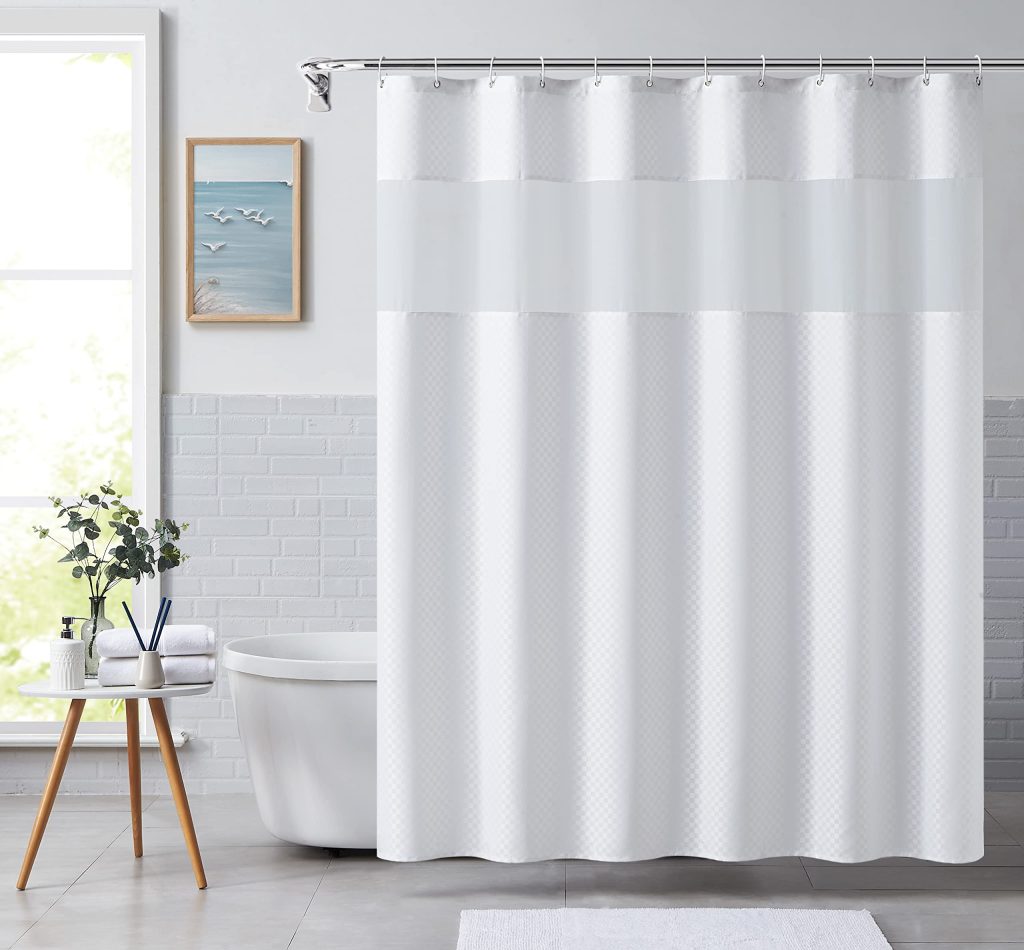Explanation of Curtains and Blinds
When it comes to decorating a room, window treatments play an important role. Curtains and blinds are two of the most popular options for window coverings. And then come the question that Curtains or Blinds Which is better? Curtains are made of fabric and typically hang from a rod at the top of the window. Blinds, on the other hand, are made of slats or louvers that can be adjusted to control the amount of light and privacy.
Importance of Window Treatments
Window treatments serve many purposes in a home. They can provide privacy, filter light, add style and color, and help with energy efficiency. They can also help to block out noise and provide insulation. With the right window treatments, you can transform a dull room into a beautiful, inviting space.
Brief Overview of the Debate Between Curtains and Blinds
The debate between curtains and blinds has been going on for years and most of the people wants to know Curtains or Blinds Which is better?. Each option has its own advantages and disadvantages, and the best choice ultimately depends on your personal preferences and the specific needs of your space. In this article, we will explore the pros and cons of each option and help you determine which one is best for your windows.
Whether you’re looking to add some style to a room or simply need a practical solution for light control and privacy, curtains, and blinds are both excellent choices. Let’s dive deeper into the debate and discover which one comes out on top.
Curtains are a popular window treatment option that offers a wide range of advantages. Here are some of the benefits of choosing curtains for your windows:
The Case for Curtains
Advantages of Curtains
Versatility in Style and Design
Curtains come in a wide range of styles, designs, and colors. This makes it easy to find a curtain that fits your decor and personal style. Whether you prefer a traditional or modern look, there is a curtain out there that will meet your needs.
Wide Range of Materials and Textures
Curtains are available in a variety of materials, such as cotton, silk, linen, and polyester. Each material has its own unique texture and appearance. For example, silk curtains have a luxurious feel, while linen curtains have a more casual and relaxed look. The variety of styles and materials available means that you can choose a curtain that matches the look and feel of your room.
Enhanced Insulation and Soundproofing
Curtains can provide additional insulation to your room, helping to keep it warm during the colder months and cool during the summer. Thicker curtains made from materials such as velvet or wool are particularly effective at providing insulation. In addition, curtains can also help to reduce noise levels, making them a great choice for bedrooms or other areas where you want a quieter environment.
Improved Privacy
Curtains can provide additional privacy to your home. This is particularly important if you live in a busy area or have windows that face the street. Thick curtains with a lining can help to block out light and prying eyes, while still allowing you to enjoy natural light during the day.
Types of Curtains
When it comes to curtains, there are several types to choose from. Here are some of the most popular options:
Standard Curtains
Standard curtains are made from a single layer of fabric and are typically used for decorative purposes. They are available in a variety of lengths, widths, and colors, making them a versatile option for any room.
Sheer Curtains
Sheer curtains are made from lightweight, translucent fabric that allows light to filter through while still providing privacy. They are a great choice for rooms that require natural light, such as living rooms and dining rooms.
Blackout Curtains
Blackout curtains are made from thicker fabric and are designed to block out light completely. They are a popular choice for bedrooms, nurseries, and home theaters, where you want to create a dark environment.
Thermal Curtains
Thermal curtains are designed to provide additional insulation to your home. They are typically made from thicker materials and are lined with a layer of insulating material. This helps to keep your home warm during the winter and cool during the summer, making them a great choice for energy-efficient homes.
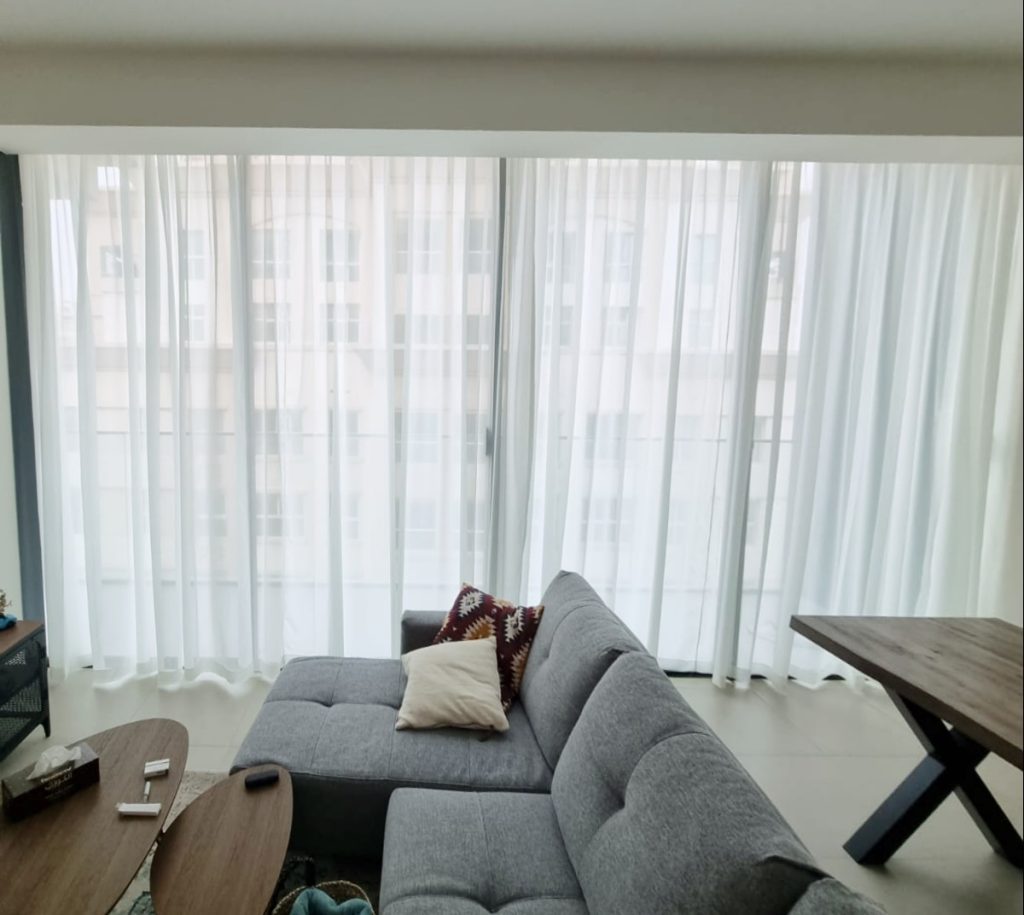
The Case for Blinds
When it comes to choosing between curtains and blinds, many people opt for the latter. Blinds have a sleek, modern look and offer a range of benefits that make them a popular choice for window coverings. Here are some of the advantages of choosing blinds:
Advantages of Blinds
Control over Light and Privacy
Blinds offer excellent control over the amount of light that enters a room. You can adjust the slats or louvers to let in as much or as little light as you want. This makes them ideal for rooms that receive a lot of sunlight, such as living rooms and bedrooms. Blinds also provide superior privacy control, allowing you to adjust the angle of the slats to block the view from outside.
Durable and Easy to Maintain
Blinds are made from sturdy materials such as metal, wood, or vinyl, making them durable and long-lasting. They are also easy to clean and maintain, requiring only a quick wipe down with a damp cloth to keep them looking new.
Space-Saving Design
Blinds have a compact design that can help to save space in a room. Unlike curtains, which can take up a lot of wall space, blinds can be installed directly inside the window frame, leaving more room for furniture and decor.
Increased Energy Efficiency
Blinds can help to improve the energy efficiency of your home by keeping out drafts and blocking UV rays. This can lead to lower heating and cooling bills and a more comfortable living environment.
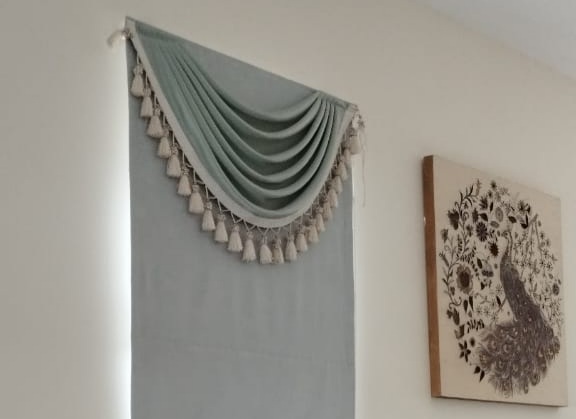
Types of Blinds
There are several different types of blinds to choose from, each with its own unique features and benefits. Here are some of the most popular types of blinds:
Vertical Blinds
Vertical blinds are made up of vertical slats that run along a track. They are ideal for large windows and sliding glass doors and can be easily adjusted to control the amount of light and privacy.
Venetian Blinds
Venetian blinds are made up of horizontal slats that can be adjusted to control light and privacy. They come in a range of materials, including wood, metal, and vinyl, and are a popular choice for bedrooms and living rooms.
Roller Blinds
Roller blinds are made up of a single piece of fabric that can be rolled up or down to control light and privacy. They are a versatile option that can be used in any room of the house.
Roman Shades
Roman shades are made up of a single piece of fabric that folds up into pleats when the shade is raised. They offer a soft, elegant look and are a popular choice for bedrooms and living rooms.
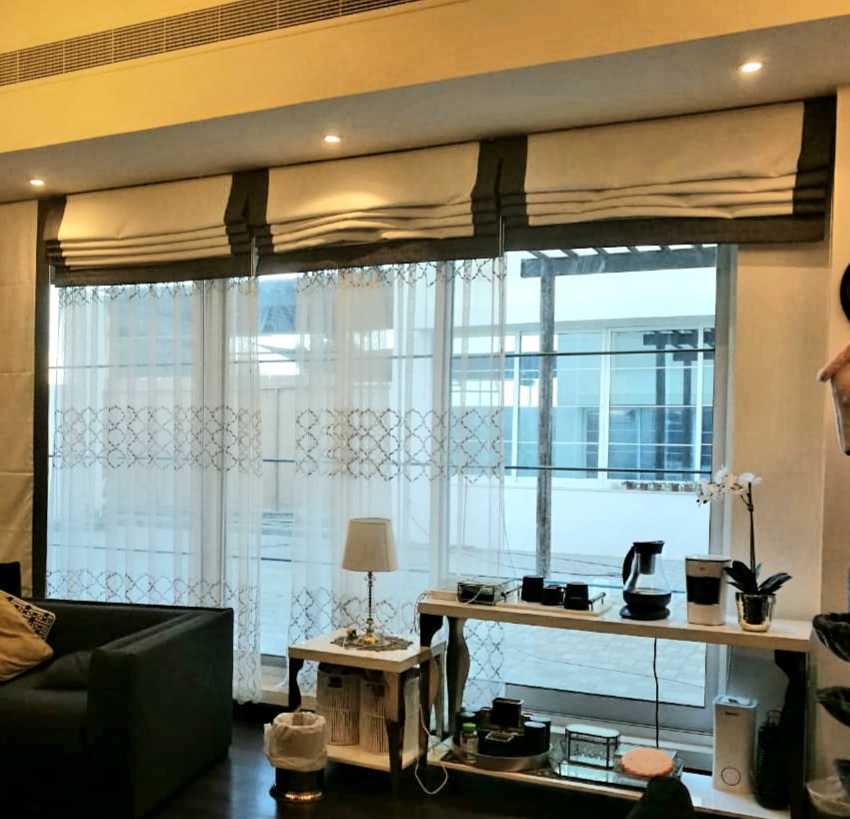
Factors to Consider When Choosing Between Curtains and Blinds
Choosing between curtains and blinds can be a difficult decision, as both options offer their own unique advantages and disadvantages. When making your choice, it’s important to consider a variety of factors to ensure that you make the best decision for your space. Here are some of the most important factors to consider:
Window Location and Orientation
The location and orientation of your windows can play a big role in determining whether curtains or blinds are the best choices. For example, if your windows face a busy street or a neighbor’s house, you may want to choose blinds for greater privacy control. On the other hand, if your windows face a scenic view or a beautiful garden, you may want to choose curtains to add to the aesthetic appeal of the space.
Room Function and Ambiance
The function and ambiance of the room you’re decorating can also impact your decision between curtains and blinds. For example, if you’re decorating a bedroom, you may want to choose curtains that provide a soft, romantic look and feel. On the other hand, if you’re decorating a home office, you may want to choose blinds that offer greater control over light and privacy for a more productive work environment.
Personal Style and Design Preferences
Your personal style and design preferences should also play a role in your decision between curtains and blinds. If you prefer a more traditional or rustic look, curtains may be the best choice. On the other hand, if you prefer a more modern or minimalist look, blinds may be the better option. You should also consider the color and pattern of your curtains or blinds to ensure that they complement the rest of your decor.
Budget and Maintenance Requirements
Finally, you should also consider your budget and maintenance requirements when choosing between curtains and blinds. Blinds are typically less expensive than curtains, although the cost can vary depending on the material and style you choose. Blinds are also generally easier to maintain than curtains, as they can be easily wiped down with a damp cloth. Curtains may require more maintenance, such as dry cleaning, and may need to be replaced more frequently.
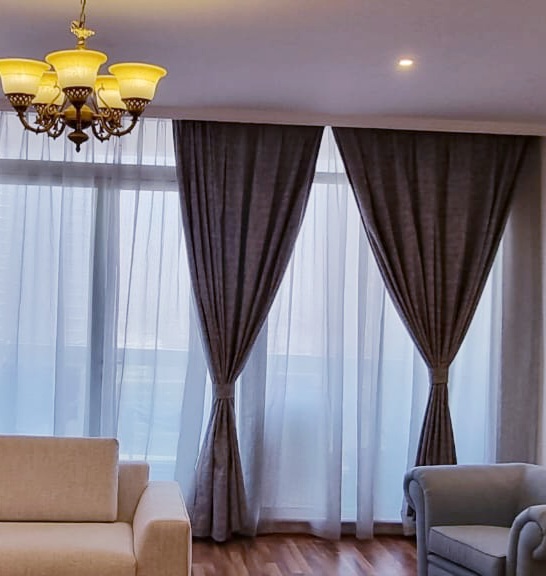
Final Verdict: Which One Is Best?
After considering all the factors outlined above, you may still be wondering which option is best for your space: curtains or blinds? Here’s a rundown of the pros and cons of each option, as well as the best choice for different scenarios.
Pros and Cons of Curtains
Curtains are a classic window treatment option that offer a range of advantages and disadvantages.
Pros:
- Curtains come in a wide variety of fabrics, colors, and patterns, making them a great option for adding style and personality to your space.
- Curtains can be easily swapped out or replaced if you want to refresh your decor.
- Curtains offer great insulation and can help regulate the temperature in your space, making them a good choice for colder climates.
Cons:
- Curtains can be more difficult to clean and maintain than blinds, as they may require dry cleaning or special washing instructions.
- Curtains may not be as effective at controlling light and privacy as blinds, particularly if they are made from a lighter or sheerer fabric.
- Curtains can take up more space than blinds, which may be an issue in smaller rooms.
Pros and Cons of Blinds
Blinds are a versatile and practical window treatment option that also come with their own set of advantages and disadvantages.
Pros:
- Blinds offer excellent light and privacy control, making them ideal for use in bedrooms, offices, and other spaces where privacy is important.
- Blinds are durable and easy to maintain, requiring only occasional wiping down with a damp cloth to keep them clean.
- Blinds take up less space than curtains and can be a good option for smaller rooms or windows.
Cons:
- Blinds may not offer as many style options as curtains, as they are typically made from materials like wood, vinyl, or metal.
- Blinds can be more difficult to install than curtains, particularly if you are dealing with irregularly shaped windows or windows in hard-to-reach areas.
- Blinds may not provide the same level of insulation as curtains, which could be an issue in colder climates.
The Best Choice for Different Scenarios
Here are some scenarios where curtains or blinds may be the best choice:
Living Room Windows
- If you want to create a cozy, inviting atmosphere, curtains may be the best choice.
- If you have a large, expansive living room with lots of windows, blinds may be a better option for a more streamlined look.
Bedroom Windows
- If you want to create a romantic, luxurious feel, curtains are a great choice for bedroom windows.
- If privacy is a top concern, or if you live in a busy or noisy area, blinds may be a better choice.
Kitchen and Bathroom Windows
- If you’re looking for a low-maintenance option that can withstand humidity and moisture, blinds may be the best choice for kitchen and bathroom windows.
- If you want to add a pop of color or pattern to your space, curtains can be a good choice for kitchen and bathroom windows.
Large and Irregularly Shaped Windows
- If you have large or irregularly shaped windows, curtains can be a great way to add drama and visual interest.
- If you want to control light and privacy without compromising on style, blinds may be the best choice for large or irregularly shaped windows.
Curtains vs. Blinds: Which is Best for Your Home in Dubai?
You now know which is the better choice for different rooms. We need to become more specific. This time, we will answer the debate of curtains or blinds which is the best for your home in Dubai. We will be looking at multiple rooms and recommend the best choice.
Living Room Windows
Regarding living rooms, curtains should be your choice. While blinds are good, curtains let you add a touch of sophistication and warmth to the room. Go for sheer curtains or curtains with lightweight fabrics. Curtains work better at regulating temperature, vital for cities like Dubai, known for being very warm.
Bedroom Windows
You can go with either curtains or blinds for your bedroom in a Dubai home. Both serve different functions, and your preference matters as well. If you want more privacy, then go with blackout blinds. These block sunlight and keep your bedroom feeling more cozy. On the other hand, if you want your bedroom to be more stylish, put on wave and eyelet curtains. These curtains are known for being modern and add more appeal to a room.
Kitchen and Bathroom Windows
For both kitchen and bathroom windows, you should go with blinds. These are the more practical choices. Motorized or vertical blinds come in various materials that are waterproof or moisture-resistant. Also, blinds are easier to clean than curtains so that they will be more convenient for your home in Dubai.
Large and Irregularly Shaped Windows
Homes in Dubai can come in various shapes and sizes, which holds true for those homes’ windows. For homes with bay or floor-to-ceiling windows, curtains are the better option. These types of windows are often seen in living rooms, and there are various options for living room curtains. These curtains come with versatile and customizable options.
Conclusion: Curtains or Blinds, It Depends on Your Needs
Ultimately, the choice between curtains and blinds will depend on your personal preferences, budget, and the specific needs of your space. Both options offer unique advantages and disadvantages, so it’s important to consider all the factors outlined above before making your decision. By taking the time to choose the right window treatment option, you can enhance the look and feel of your space and create the perfect atmosphere
Last…
Recap of the Debate
The debate between curtains and blinds is a long-standing one, and both options offer their own unique advantages and disadvantages. Curtains offer a wide range of style options and great insulation, but may be more difficult to maintain and not as effective at controlling light and privacy. Blinds offer excellent light and privacy control, are durable and easy to maintain, but may not provide the same level of style options as curtains and may not offer as much insulation.
Final Recommendations
When choosing between curtains and blinds, it’s important to consider factors such as window location and orientation, room function and ambiance, personal style and design preferences, and budget and maintenance requirements. Ultimately, the choice between curtains and blinds will depend on your specific needs and preferences.
Read More: How to Hang Grommet Curtains?
If you’re looking for a classic, versatile window treatment option, curtains can be a great choice. If you’re looking for a practical, low-maintenance option that provides excellent light and privacy control, blinds may be the better option for you. For some spaces, a combination of both curtains and blinds may be the best choice.
Additional Tips for Maintaining and Cleaning Window Treatments
Regardless of whether you choose curtains or blinds, it’s important to take proper care of your window treatments to ensure they stay looking their best. Here are some additional tips for maintaining and cleaning your curtains and blinds:
- Vacuum or dust your window treatments regularly to remove any dirt or dust buildup.
- Check the care instructions for your specific window treatments to determine the best way to clean them.
- For curtains, spot-clean any stains with mild detergent and warm water, or take them to a professional cleaner if necessary.
- For blinds, wipe them down with a damp cloth or use a gentle cleaning solution if necessary.
- Avoid using harsh chemicals or abrasive materials that could damage your window treatments.
Final Thoughts
Whether you choose curtains or blinds for your windows, it’s important to choose a window treatment option that suits your specific needs and enhances the look and feel of your space. By considering factors such as window location and orientation, room function and ambiance, personal style and design preferences, and budget and maintenance requirements, you can make an informed decision and create the perfect atmosphere in your home or office.
People Also Ask
Related questions asked on Google:
Which one is better blind or curtain?
It depends on your specific needs and preferences. Both curtains and blinds offer their own unique advantages and disadvantages. Curtains offer a wide range of style options and great insulation, but may be more difficult to maintain and not as effective at controlling light and privacy. Blinds offer excellent light and privacy control, are durable and easy to maintain, but may not provide the same level of style options as curtains and may not offer as much insulation.
Why curtains are better than blinds?
Curtains can be a better choice for some because they offer more style options and great insulation. They can also add a softness and warmth to a room. However, curtains can be more difficult to maintain and may not offer as much light and privacy control as blinds.
What is best for living room blinds or curtains?
The choice between blinds and curtains for a living room will depend on your specific needs and preferences. If you want more light and privacy control, blinds may be the better option. If you want a softer, more decorative look, curtains may be the better option.
Which is easier to maintain blinds or curtains?
Blinds are generally easier to maintain as they can be easily wiped down or dusted. Curtains may need to be removed and cleaned, which can be more time-consuming.
What are the disadvantages of blinds?
Blinds may not offer as much insulation as curtains and may not be as effective at reducing noise. They also may not offer as much style options as curtains.
Which type of curtain is best?
The type of curtain that is best will depend on your specific needs and preferences. Some popular types include grommet, rod pocket, and tab top curtains.
Which is more expensive curtains or blinds?
The cost of curtains and blinds will vary depending on the material, size, and style. Generally, custom-made curtains can be more expensive than standard-sized blinds.
Is it OK to just have blinds without curtains?
Yes, it is perfectly fine to have blinds without curtains. Blinds can offer excellent light and privacy control on their own.
Are blinds as warm as curtains? Blinds may not offer as much insulation as curtains and may not be as effective at reducing heat loss. However, there are some types of blinds, such as honeycomb blinds, that can provide some insulation.
What are the benefits of curtains?
Curtains can offer great insulation, reduce noise, and add a decorative element to a room. They can also help to reduce light and increase privacy.
Do curtains make a room nicer?
Curtains can add a softness and warmth to a room and can help to make a room look more finished and put-together.
Do curtains make a room look better?
Curtains can add a decorative element to a room and can help to tie a room’s design elements together. They can also make a room look more inviting and cozy.
Why do curtains reduce heat loss?
Curtains can help to reduce heat loss by creating a barrier between the cold window surface and the warm air in the room.
Why are blinds better than curtains?
Blinds can be better than curtains for some because they offer excellent light and privacy control, are durable and easy to maintain, and can take up less space. They may also be a better choice for those who prefer a more modern, minimalist look.
Is it cheaper to do blinds or curtains?
The cost of curtains and blinds will vary depending on the material, size, and style. Generally, standard-sized blinds can be less expensive than custom-made curtains.
Do I need curtains if I have blinds?
No, curtains are not necessary if you have blinds.
Are blinds colder than curtains?
Blinds tend to be less insulating than curtains, which means that they may not provide as much warmth to a room. However, this can also depend on the material of the blinds. For example, wooden blinds can provide more insulation than metal or plastic blinds, but they are generally more expensive.
What are the benefits of blinds?
Blinds offer several benefits, including:
- Control over light and privacy
- Easy to clean and maintain
- Space-saving design
- Increased energy efficiency
- Variety of styles and materials to choose from
What is the main purpose of blinds?
The main purpose of blinds is to control the amount of light and privacy in a room. Blinds allow you to adjust the amount of light coming in, as well as provide a level of privacy when closed.
Do blinds give more privacy turned up or down?
Blinds can give privacy both when they are turned up or down, depending on the position of the slats. If the slats are turned up, they can still allow some light in but provide privacy. If the slats are turned down, they can completely block out light and provide even more privacy.
Do blinds keep heat out better than curtains?
Blinds can be more effective at keeping heat out than curtains because they provide better insulation. The slats of blinds can be adjusted to control the amount of heat and light that enters a room, which can help to reduce energy costs.
What are the 3 types of blinds?
The three main types of blinds are:
- Venetian blinds: horizontal slats that can be tilted to control light and privacy
- Roller blinds: fabric that rolls up and down to control light and privacy
- Vertical blinds: vertical slats that can be rotated to control light and privacy
Are blinds a good idea?
Blinds can be a great idea for many reasons, such as their ability to control light and privacy, their easy maintenance, and their energy efficiency. They also come in a variety of styles and materials, making them suitable for many different types of decor.
Do blinds lower electric bill?
Blinds can help to lower electric bills by reducing the amount of heat that enters a room. This means that the air conditioning system does not have to work as hard to maintain a comfortable temperature, which can result in lower energy costs.
Do blinds add value to a home?
Blinds may add value to a home, especially if they are high-quality and well-maintained. They can improve the appearance of a room, and their energy efficiency can be seen as a desirable feature to potential buyers. However, the impact on home value may vary depending on the type of blinds and the overall aesthetic of the home.
From where I can Buy Curtains and Blinds in Dubai?
There are a lot of Curtains store in Dubai. You can search on google and can buy curtains and blinds. However, before choosing a store, make sure they are trustable as well as they have a good reputation. In that case, you can also try Best Curtain in Dubai.


